Google Algorithm Anecdotes: Keeping Track of Google’s Many Updates
Google algorithm updates have caused quite a stir over the past few years. Working out how to optimise a website’s pages to satisfy the needs of Google Pigeon, for example, required a good amount of trial and error, resulting in a bit of an emotional rollercoaster. We’ve already put together a detailed list of how you can optimise a site for each and every Google algorithm, but here we’re looking into how to remember that information. Our approach is a little unorthodox, but isn’t that exactly how people remember? Essentially, we’ve written a short, fictional story (or an “algorithm anecdote”) for each of our main algorithms. Hopefully, the stories will be memorable enough that they’ll help you to remember what each of Google’s updates have all been about. If not, then hopefully you’ll enjoy our slightly bizarre, almost entirely unrelated set of short stories nonetheless.
Panda
Billy and Tom were heading back home after a day of mountain biking. They often visited the local forest to test their bikes out; it was rare that any dog walkers were ever found there, and it wasn’t too far out for their parents to start worrying. Just as they left the cover of the trees, they noticed something in the distance. What looked like a large dog was running towards them at some speed. Alarmed, the boys stopped moving towards it, instead trying desperately to get a better look at the creature. Eventually they did, and their mouths dropped to the floor in perfect harmony. Just as quickly as it had started, it was over. The panda ran straight past them, heading back towards the forest. Everything about the beast looked perfect; its colours were striking, and the speed at which it moved was incredible. Opening his mouth, Tom stood, fixed to the spot, eyes wide. Billy turned to his friend, and spoke. “That’s quality” was all he could muster. “That’s the Panda for you”, replied Tom.


Penguin
It is a well-known fact that penguins huddle together to stay warm. Their body heat keeps themselves and their friends from freezing in the arctic temperatures they fight to survive in. They also rotate their positions, so that different penguins are on the outside at different times, allowing them to all enjoy the same amount of protection on average. The only problem with the system is that, sometimes, the odd penguin abuses the system. Sometimes, a penguin will avoid taking a stint on the outside, and remain in the inner reaches of the group. This underhand tactic came to be referred to as a “black hat tactic”. The term originated from the first penguin to be caught out; he was a particularly black-headed rockhopper penguin, and he was made to spend longer on the outside as a result. *The above information has not been scientifically proven. There are no instances on record of actual cheating penguins.
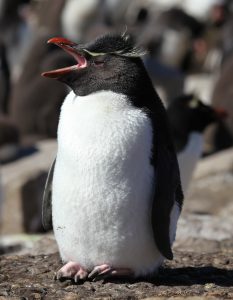

Hummingbird
Of all the birds of the jungle, the hummingbird was always one of the cleverest. Sure, parrots could imitate human speech, but when it came to finding food, no-one could beat the hummingbird. You see, the hummingbird’s technique was vastly different to that of any other bird. Instead of concentrating on the one food they were searching for, they would look for clues. That meant that, while other birds waited until they had a clear sign of their meal, the hummingbird was busy looking for signs. For example, to find insects, it knew to look for the river. The hummingbird never looked for just one thing; it looked for anything that was related and put it all together.
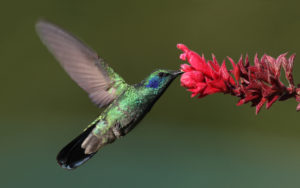

Pigeon
Stan, the starling, was new in town. He had no idea where to go for the best food or which areas to avoid, and he needed some guidance. After some early nerves, Stan eventually plucked up the courage to talk to one of his neighbours. Rufus, the robin, was more than happy to help him out. “All I’ve ever done is followed the pigeons”, Rufus tweeted. “They’ve got the best local knowledge around, and always seem to know where to be. They’re always tweeting about the best places to be”. Stan followed Rufus’ advice, and sought out the town’s pigeons for some advice. Surely enough, the local experts were able to point him in the right direction of the hotspots, both in terms of food and comfort. If ever a newcomer asked Stan for any advice, he’d send them to the pigeons.
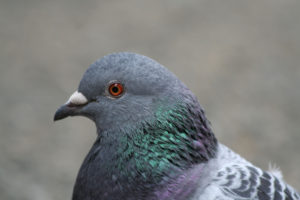

Possum
The possums were tired of being stuck in the town’s suburbs. Birds, squirrels, and hedgehogs were the celebrities of the nearby parks, but the possums felt that this was unfair. After all, they’d never been given a chance to mix with the rest of the animals; they were always sidelined and marginalised purely because of where they lived. Po, the group’s chief possum, eventually decided that enough was enough. They were going to travel to the town centre, and set up camp in the parks there. That way, people would begin to see them, and would realise just how great they were. The previously unseen possums started to emerge from around almost every corner. To their delight, their new neighbours warmed to them immediately, welcoming them with open arms. Finally, they could live among the inhabitants of the town’s most desirable park, alongside the birds, squirrels, and hedgehogs. Po, and his followers, had shown everyone what a great addition to their town they could be. As a result, people began to take notice of the inhabitants of their local areas a lot more, and became less preoccupied with the park’s “big three”.
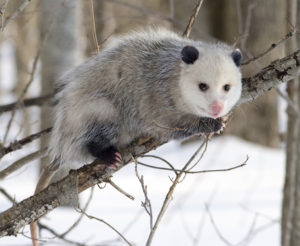

Fred
Fred sat, tense, in his armchair. As a seventy-something-year-old man, he had been retired for a number of years, and was often a little bored. Something that he always looked forward to, however, was watching the football. He lived for the weekends, watching Super Sunday from midday until 6pm. The one thing he couldn’t abide, though, was adverts. This pet hate of Fred’s became a bit of an issue, as half-time was always littered with them; betting companies, banks, and more betting companies always cashed in when it came to the football. It was quarter to two on one particularly cold Sunday, and a particularly boring half of football had just ended. It was 0-0, neither side had really threatened, and Fred was fed up. It was unsurprising, therefore, that the latest in betting advert innovation proved too much for him. He shouted at the top of his voice and launched his walking stick straight at the screen. The screen smashed. No more football, but no more ads. Overall, Fred was happy. Fred hated ads.


Hawk (Possum, Episode II: The Suburbs Awaken)
Following their relocation, the possums were loving their new home. The only problem was that some of them were abusing their position. For all the good that possums were doing, there was a side to them that was harming others, completely unnecessarily. Certain members of the posse were preventing other animals from coming outside at all. As a result, a way of getting rid of these nasty, rogue possums became necessary. In a bid to counter the negative side of the possum influx, a hawk was introduced to scare the bullies away. The hawk’s purpose was simple: eliminate the nasty side of the possums, without undoing all of their good work. As soon as the hawk arrived, a new lease of confidence ran through the other animals. They were allowed outside once again, and the possum movement had been regulated. Post-hawk, the possums were still around, but they were now sharing the limelight with their friends.
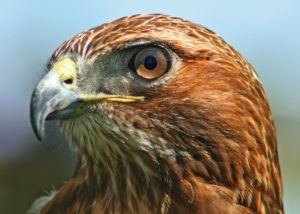

Active Internet Marketing (UK)
Hopefully, a few of our slightly odd anecdotes will have stuck in your head, and you’ll be able to use them to remember what Google’s various algorithm updates are all about. Next time you’re struggling to remember what Google Fred targets, just think of the retired football fan that hates adverts. To get in touch about the SEO services we offer, or to simply have a chat with some of the crazy minds behind these slightly bizarre “case studies”, give us a call on 01604 765 796. The team here at Active Internet Marketing (UK) are always more than happy to talk SEO!
